June 28, 2019
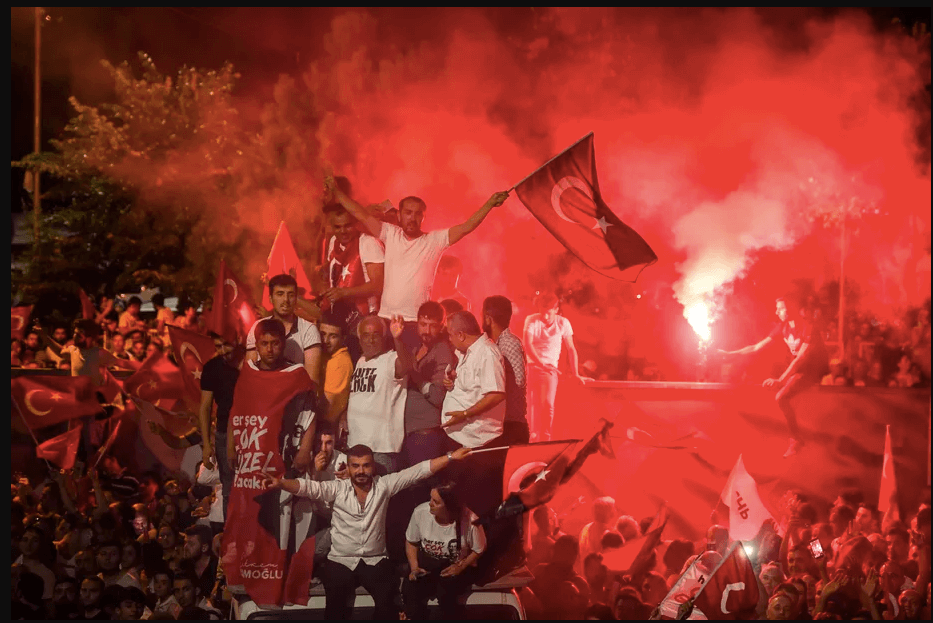
June 28th weekly reports

A Russian warship, the Admiral Gorshkov, docked in Havana, Cuba this week giving foregin policy experts Cold War deja vu. The warship is armed with cruise missiles, air defence systems and other weapons. Russian Deputy Foreign Minister Sergei Ryabkov said on Monday that US plans to deploy missile systems near the Russian border risks a nuclear standoff on a par with the height of the Cold War. The ship is docked in the same port where until last month American cruise ships docked until President Trump banned them from entering Cuban ports.

Gabonese women rights activists are denouncing Gabon’s President and dictator Ali Bongo Ondimba after he scrapped the ministry responsible for women’s affairs early this week. President Bongo pledged to empower the central African country’s women but activists say this move directly contradicts his promises. Gabonese women do not have full political or economic rights, and in the most recent elections, women won 15 of 120 seats in the National Assembly and 19 of 102 seats in the Senate.

Notorious for its brutal prisons, Bolivia announced this week plans to reform and overhaul the prison system. The reform includes plans to build a new 10,000 capacity maximum security prison 40km from the Bolivian capital of La Paz. The prison will replace the current San Pedro maximum security prison, designed to hold 800 inmates but currently holding about 2,800. Bolivia has one of the highest murder rates in Latin America, ahead of neighbors Paraguay and Chile. The new prison is meant to alleviate overcrowding, which has led to deadly rioting in the past.

Four men with suspected ties to the Islamic State (IS) group were arrested in Nicaragua after crossing illegally from Costa Rica, officials say. The identities of three of the men matched those in an alert attributed to US officials saying three suspected jihadists were in Central America. According to reports, officials feared they could have plans to try to enter into the United States. The four, aged between 26 and 41, included two Egyptians and two Iraqis. They have been deported to Costa Rica.
After a crackdown on opposition members last year by the Nicaraguan government and in the wake of a new law that provides immunity to human rights violators, the Human Rights Watch sent a letter in advance to the Organization of American States (OAS) recommending that OAS “ redouble the pressure on the Nicaraguan government to curb human rights violations through the concrete step” like targeted sanctions, suspend all cooperation with the military force, and to exercise criminal jurisdiction in accordance with the UN Convention on tortue.

Despite multiple summits, claims by leaders stating otherwise, and continued talks tensions in the Korean Peninsula remain. On Thursday, North Korea asked South Korea to stop trying to mediate between Pyongyang and Washington, as it stepped up its pressure on the United States to work out new proposals to end the seemingly deadlocked talks on its nuclear program. Later that day, it is suspected that Australian student Alek Sigley has been detained while studying abroad in Pyongyang. His family has not heard communicated with him Tuesday, which they said was irregular.

Human rights activists are decrying Myanmar’s government order to cut internet and telecommunication services in the Rakine state as a “gross human rights violation.” After the Myanmar’s military cracked down after allegedly the Rohingya militants attacked police outposts in 2017, US and international bodies have stated the attacks amount to genocide and ethnic clensing. The crackdown has caused when more than 720,000 people to flee are into Bangladesh as a result of the ensuing violence. Rakine is in a total blackout as reporters and humanitarian groups are banned from entering, and many worry the internet shut down is another way to censor human rights violations from being known. The order does not specify when the order will end, but officials stated it was administered for public security issues.

The House this week approved a $4.5 billion humanitarian aid package to address the crisis at the Southern border, after infighting among Democrats over provisions of the bill. The bill, which faces an uphill battle to pass the Senate and a potential veto from the White House, strictly stipulates that the money is only to be used for humanitarian relief and not to further any of President Trump’s harsh border measures and immigration tactics. The bill was passed after many reports of “inhumane” conditions and overcrowding at border detention centers for children separated from their parents came to light. The reports state that children were kept without clean clothes, adequate food, and without access to soap and toothpaste for weeks on end.
Tensions continue to rise between the US and Iran, as Iranian President Hassan Rouhani described the White House as “mentally crippled” in response to new sanctions imposed against Iranian Supreme Leader Ayatollah Khamenei. Iran announced that they have shut the door to diplomacy, leaving many to speculate that the path to a resolution over this nuclear crisis is shrinking. Iran recently announced they will speed up the enrichment of uranium, much to the outrage of the US.
House Democrats announced that former Special Counsel Rorbert Mueller will publicly testify before Congress about his investigation into Russia’s 2016 election interference and possible obstruction of justice by President Trump. Mueller agreed after subpoenas by the House Judiciary and House Intelligence committees.

On June 25, a court in Cambodia charged seven people, including five Chinese nationals, after a fatal building collapse which killed 28 and injured 26 people in the beach city of Sihanoukville over the weekend. This accident has sparked discussion in Cambodia surrounding Chinese investment and business in the country and its lack of regulation.

This week, Zimbabwe’s government increased its arsenal of war weapons to deal with looming street protests, as the intractable political and economic crisis deepens. Documents obtained by Harare based the Independent found that the government purchased 343 assault rifles, 600 sniper rifles, 5,000 motors, and 500 grenades. Domestic and foriegn opposition leaders fear that state violence would plunge Zimbabwe back into a pariah state. Yet despite the concerns, the Zimbabwe government, its people, and foreign experts all believe the likelihood of mass opposition protests of President Mnagagwa are growing. The looming civil unrest is in part due to the illegal detainment of various opposition leaders, sky-high inflation nearing 100%, and gas prices higher than wealthier countries like Monaco and Hong Kong. Later this week, the government announced that it banned foreign currency for local transactions with the hope to strengthen the economy and curb political unrest.

The Democratic Republic of Congo has been suffering from humanitarian tragedies this week. An outbreak of ethnic violence in the eastern province of Ituri has resulted in more than a hundred deaths and thousands fleeing their homes to other parts of the Democratic Republic of the Congo or across Lake Albert to Uganda. The ebola epidemic continues to ravage the eastern part of the country, making this outbreak the second deadliest in history.
On June 23rd, one of the major opposition leaders Jean-Pierre Bemba returned to the Democratic Republic of Congo, immediately meeting with Martin Fayulu, the true winner of the 2018 presidential election according to the independent reports. Bemba has joined Fayulu in calling for peaceful demonstrations against the government scheduled to happen on Sunday, June 30th.

Venezuelan President Nicolas Maduro warned on Wednesday that he would be “ruthless” with the opposition if they attempted a coup d’etat, after his government said it had thwarted a plot to assassinate him. A spokesman for the Maduro regime would later say that the a group of mostly retired police officers were caught planning to bomb a government building, loot Venezuela’s central bank, and seize a military airbase. The spokesman said the coup attempt was supported by neighboring countries like Colombia, yet like other reported coup attempts in the conflict ridden country, the government offered little evidence. Opposition leaders say the baseless accusations enable Maduro to crackdown on dissent. On Thursday, the Organization of American States said Venezuela is the region’s top priority.

Mahathir Mohamad, the 93-year-old prime minister of Malaysia, said on Saturday that he will step down within three years and hand over the reins to Anwar Ibrahim. The power will be usurped by Ibrahim, who was Mohamad’s protege-turned-rival before the two reconciled again to win last year’s general elections. Experts argue that the three year time limit is inadequate due to the Prime Minister’s age, which could yield uncertainties for the country if he were to pass away before hand.
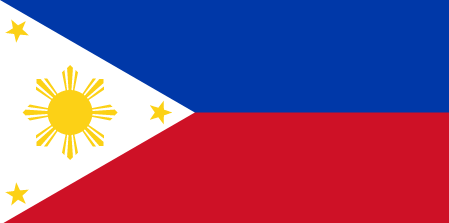
As single-use plastic is wreaking havoc on the Phillipino environment, environmental activists are training and engaging school children to help put an end to the disaster. Approximately 160 million bits of plastic wash up on the Phillipino shore every day, which come from single-use plastics such as straws and plastic bags. This has put immense pressure on the environment and has left activists and the government scrambling to find a solution. Activists from Green Antz Builders are using plastic waste collected by school children to make bricks that are used in buildings, including in the schools the children attend.
In order to salvage relations between the Philippines and China, Phillipino President Rodrgio Duerte announced that a government investigation into the sinking of a Philippino fishing boat by a Chinese boat in the South China Sea was an ordinary mishap and should not strain relations between the two countries. This comes amidst growing tension between Southeast Asian countries and China over disputes in the South China Sea, which China has claimed full control of.
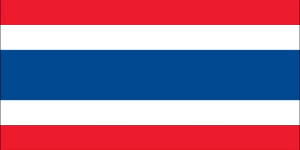
The Muslim population in the southern provinces of Thailand are in uproar as telecommunication companies began requiring all users of the majority-Muslim provinces’1.5 million mobile numbers to submit a photo of themselves for facial recognition purposes following orders from the army. While the army and military junta claim that this move will improve security in the region, the representatives of the Malay and Muslim communities say this move amounts to racial profiling that in conjuction with faulty facial recognition technology will lead to arrests of innocent people.
Thailand’s junta leader-turned-Prime Minister Prayut has announced that the new government is going to be formed by mid-July, nearly four months after the legislative elections in March. Until a new government is formed, Mr Prayut is both the legitimate elected prime minister and also the head of the coup-installed National Council for Peace and Order (NCPO). Critics say that the reason for the delay in forming the new government is Mr Prayut enjoying the powers the control of the two institutions gives him.

The Vietnamese government “state dissidents” crackdown continues after an American citizen, Michael Phuong Minh Nguyen, has been sentenced to 12 years for trying to overthrow the state. The court on Monday also sentenced two Vietnamese men to eight and 10 years in prison for the same offence as Nguyen. Despite almost radical economic and social change in recent years, the Vietnamese government continues a harsh line towards state criticism and dissent.

Turmoil in the Middle East is looking more likely by the day after the United States and Iran traded rhetorical and political blows last week. Last year, the US pulled out of the Iran Nuclear Deal, and last month Iran scaled back some of its commitments under the deal, including on the amount of low enriched uranium it is allowed to stockpile. This month, the United States accused Iran of shooting down an unmanned drone over international waters and the bombing of six oil tankers. While leaders of both countries have urged for dialogue over destruction, tensions continue to grow rhetorically and politically. President Donald Trump imposed sanctions on the Supreme Leader of Iran Ayatollah Ali Khamenei, his office, and those closely affiliated with him, which Iranian President Hassan Rouhani described as “useless” and showed the White House was “mentally retarded.” A spokesman for Iran’s government asserted that while Iran wants to negotiate, the sanctions are a “permanent closure of the path of diplomacy”.

After Sudan’s military leaders rejected Ethiopia’s proposal for a transitional government, Sudan’s opposition announced they are planning new mass demonstrations against the regime on June 30th. The revolutionary opposition is demanding a transition into a fully civilian government, and want to make sure the generals hear the opposition demands loud and clear. The opposition previously accepted Ethiopia’s roadmap to civilian rule, which they saw as an option that would get them out of the political impasse. After cutting off civilian access to the internet, activists have been using other tactics to mobilize and are hoping the internet will be restored soon after a lawyer won a lawsuit against telecoms operator Zain Sudan over the blackout.
The United States is considering imposing more sanctions against the military regime if more violence was committed against protesters, after a deadly crackdown against protests left scores dead. The US has made clear that a military government is not acceptable, and believe the best solution is an agreement between the military government and the opposition Forces for Freedom and Change (FCC).
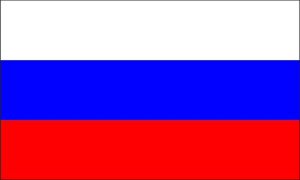
Tensions are rising even more between Russia and its neighbors. Following the demonstrations in Georgia after a Russian lawmaker addressed the Georgian parliament from the speaker’s chair, Russia has suspended flights to Georgia and is looking to ban wine imports from the ex-Soviet country. Tensions with Ukraine and the Baltic States have risen after the Council of Europe, a human rights watchdog voted to readmit Russia five years after its suspension due to the Crimean annexation. Ukraine lobbied Western governments to vote against Russia’s readmission, and after the vote in Strasbourg, President Zelensky expressed disappointment with the vote. In military news, Jens Stoltenberg, the General-Secretary of NATO has declared that Russia must destroy its short-range nuclear-ready cruise missile system, or the alliance will be forced to respond. Meanwhile, a Russian military plane landed in Venezuela, carrying military experts, repeating the action that heightened tensions between Moscow and Washington three months ago.
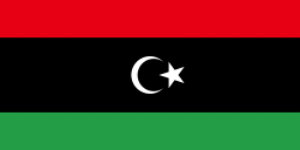
Forces allied to Libya’s UN-recognised government say they have retaken Gharyan, a strategic town south of the capital, Tripoli, although forces loyal to renegade military commander Khalifa Haftar denied the claims. Libya, mired in chaos since a NATO-backed uprising that toppled and killed longtime ruler Muammar Gaddafi in 2011, has seen a multitude of militias vying for control of the oil-rich country. Yet, if the reports are true, it could lead to an end to conflict ridden country. A spokesperson for the forces that its capture was a “significant victory” that should lead to the “collapse” of Gen Haftar’s campaign.

After the release of a report on the state of human rights in Eritrea by the UN Special Rapporteur highlighting continually dismal human rights conditions, Human Rights Watch (HRW) has called on the UN to maintain pressure on Eritrea to fix the situation. The report comes as the UN Human Rights Council, which Eritrea sits on, is going to start debate over whether to keep Eritrea in the spotlight at its 41st session.
In an effort to continue to repair and build relations with Eritrea, Ethiopia has announced that it is about to pursue a railway building project to connect Ethiopia with Eritrean port cities. Announced at the Ethio-Italian Business forum, the Ethiopian finance minister says the project has the backing of the World Bank and a feasibility study has been launched.

Hundreds of Hong Kongers have marched towards various foreign consulates in the city before the G20 summit in Osaka, pleading countries like the United States, France and the United Kingdom to free and liberate Hong Kong from Beijing’s influence. The protesters delivered petitions to the consulates of nineteen G20 countries. This march is one of many protests happening this week, most of them being impromptu and not registered, which marks them apart from the two-million person march that happened on June 16th.
Prague:
The largest protests since the downfall of communism took place over the weekend in Prague, Czech Republic. An estimated 200,000 marched to Letna Park –– the same location of the protests during the collapse of the Soviet Union in 1989 –– demanding the resignation of Prime Minister Andrej Babis. The billionaire Prime Minister, who was elected to fight corruption, has been accused of misusing subsidies from the Europen Union. In April, the police formally recommended charging the PM but an indictment can only occur through the Justice Minister. However, after the police made their recommendation, the Justice Minister resigned. He was succeeded by Marie Benesova, who is close to the country’s president, Milos Zeman, an ally of the PM. No political consequences have emerged from the protests, and PM Babis is expected to narrowly survive a no-confidence vote.
Istanbul:
In a stunning indictment on the countries economic and political situation, Turkish opposition candidate Ekrem Imamoglu won the redo of the Istanbul mayor’s race by a landslide on Sunday with over 54% of the vote. Imamoglu already won in March by 18,000 votes, but the countries top electoral authority voided the election, giving democratic skeptics more worries about Turkish politics. In June, Imamoglu won by over 800,000 votes. Istanbul is a pivotal economic and political center for country, giving President Erdogan’s rule a strong rebuttal. Later this week, a trial for 16 people accused of “terrorism” charges and organising anti-government protests in 2013 begun with rights groups calling the allegations baseless.
Mauritania:
For the first time in Mauritania’s history, voters chose a presidential successor in a democratically elected election. Mohamed Ould Ghazouani won the presidential election with 52% of the vote according to the elections tribunal, but opposition leaders are crying foul. The leading opposition leader and second-place winner Mohamed Ould Boubacar disputed the election: “We are launching an appeal to the Mauritanian people … to resist, within the bounds of the law, this umpteenth coup d’etat against the will of the people.” Boubacar cited that the election was fraught with “multiple irregularities … eliminated any credibility” of the election in the West African nation.” Opposition leaders boycotted the 2014 elections. Regardless of opposition, Ghazouani declared himself winner Sunday night promising to continue economic growth and stability.